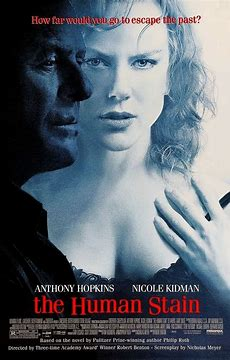Harrison Baedeker had known love once in his life, and could never forget her. She was his first love, his best love, and his last love. Smitten, he could never move beyond her, never proceed beyond from what Turkish poets call aşk - romantic, sexual, unforgettable love to sevgi - mature, permanent, longstanding affection.
As a result, he remained single, hopelessly romantic, and emotionally desperate. If he had had love once, he could have it again. Was there no room in an infinite universe for more of the same?
F. Scott Fitzgerald had said in The Rich Boy, a winsome story of lost young love, 'There are many loves in the world but never the same love twice', a note of pessimism for the loss of first loves, and a greyish optimism for the more ordinary loves to come.
Baedeker had read these lines as a young man, and had excepted himself - his was to be a life increasingly passionate loves, each more fulfilling than the one before. The dull, compromised, deadly prospect of a long marriage would not be for him. His first love could be and would be recreated, reproduced....he could not find the right words... for the romantic series of loves to come.
Fitzgerald's story left some doubts as to its meaning. Were men so fanciful and commandeered by romantic love that they would be forever in Petrarch's traces? Condemned to a life of frustrated desire? Or were they Stoics, persuaded that love comes in all shades, none special, all unique only because of the particulars of shade and shadow?
The Coleman Silk character of Phillip Roth's The Human Stain said to a friend who challenged him on the wisdom of a December-May affair with a low-class, abused woman, 'Granted, she's not my first love; and granted, she's not my best love; but she certainly is my last love. Doesn't that count for something?'
Another take on Fitzgerald. Who cares of what one's last love is made? It has importance only because of its place in the serial; just as first love must be recognized. Silk had led a long, loving (Turkish sevgi) life with his wife, one more of accommodation than passion - he too had never forgotten his first love - but now at the end of his life, comparisons were not valid. A thirty-something lover would never be like a wife of fifty years, nor should she be. She would only be a portal to something different, a clue to an aspect of life overlooked.
Harry Baedeker should have had some of Roth's wisdom. As it was, he moped. Time and again he was tempted, but women would never measure up. Solitude with pungent memories of Lucinda, his first love, were preferable to social concubinage - an unfair but accurate description of his idea of marriage. In current terms, his virtual love was as real and consequential as any other flesh-and-blood representative of women.
There was one woman who pushed all the right buttons, who challenged his celibacy and solitude as arrogant reprisals. In other words, 'Man up', get on with it, and so what if we're not soulmates’, she said. 'We're in the same boat'; but as hard as he tried, he couldn't shake the image, dream, specter...again words failed him… of his first love.
Consigned, he said he felt, marginalized, and trapped. The world with all its first-come-first-serve sexuality, johnny-come-lightly liaisons, come-ons and brush-offs had left him befuddled. Not only was he beholden to a romantic wraith of decades past, but he was ridiculed by new-gen X sexual adventurers.
Idealism, Petrarch, and musings about love are for the birds, he finally concluded; and before it's too late, I must swim in the stream. Affairs were not difficult in a city with skewed demographics and a feminism which had never gotten over Daddy. Harrison found young women eager to mate with a late middle-aged, wealthy, successful K Street lawyer. They wanted money, security, position, and opportunity. He wanted youth; and the deal was easily consummated.
Some of these women fell in love with him - whatever that meant - and he was surprised at the afternoon soap's tears, pleas, and 'please don't leave me' entreaties, but still, he decided that enough was enough.
There is no moral to the story. Each to his own. It would be satisfying to the many who value love and see it as a human given, to view the solitary end of life of Harrison Baedeker as confirming of the old, tried and true Biblical injunction 'Be fruitful and multiply', and the hundreds of years of poetic affirmation of love. He was a wasted caricature of the social outlier - bereft, uncared-for, alone, and desperately unhappy.
While Harry had his doubts, his friendships with the old ladies of his retirement home were satisfying enough to at least shelve his regrets; and his nieces, nephews, and old retainers were very happy when his will was read.







No comments:
Post a Comment
Note: Only a member of this blog may post a comment.